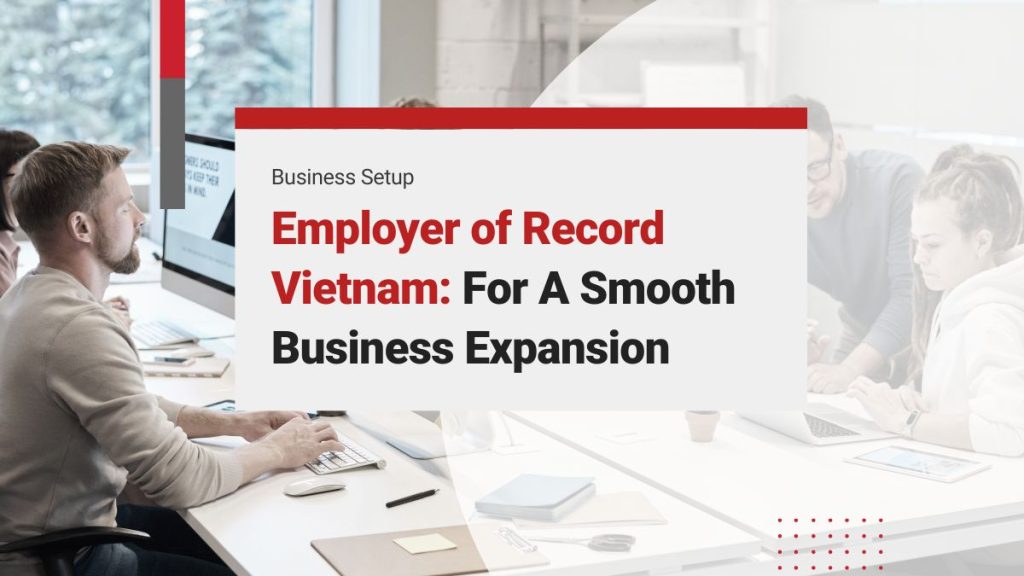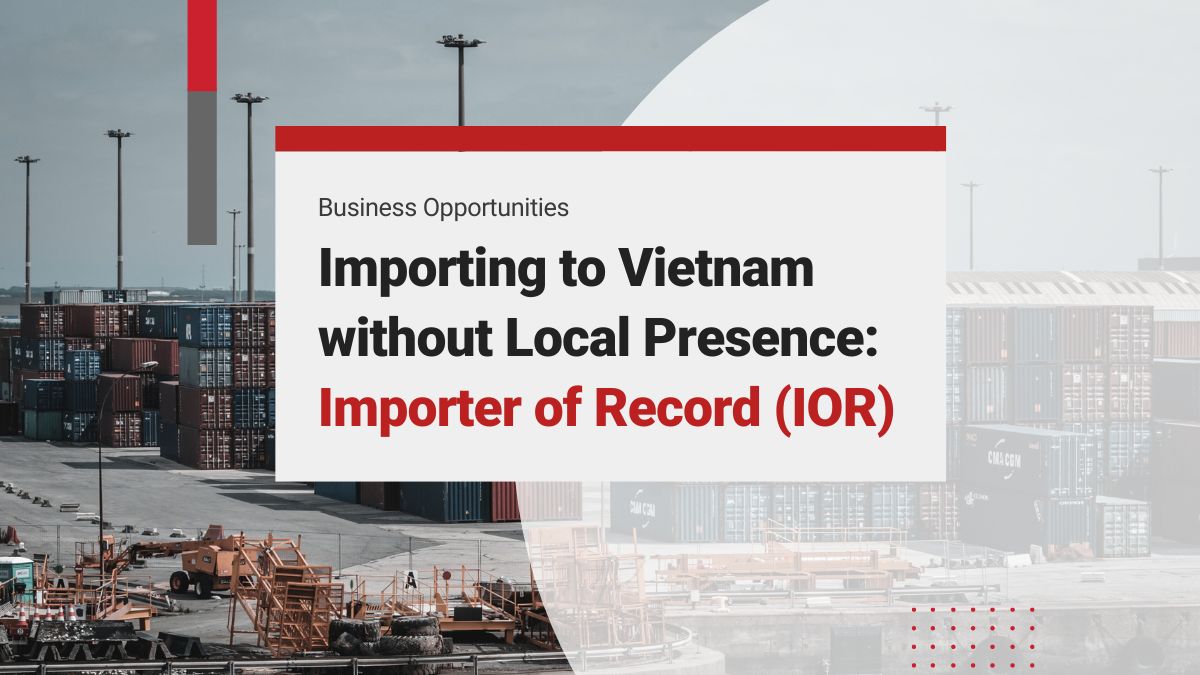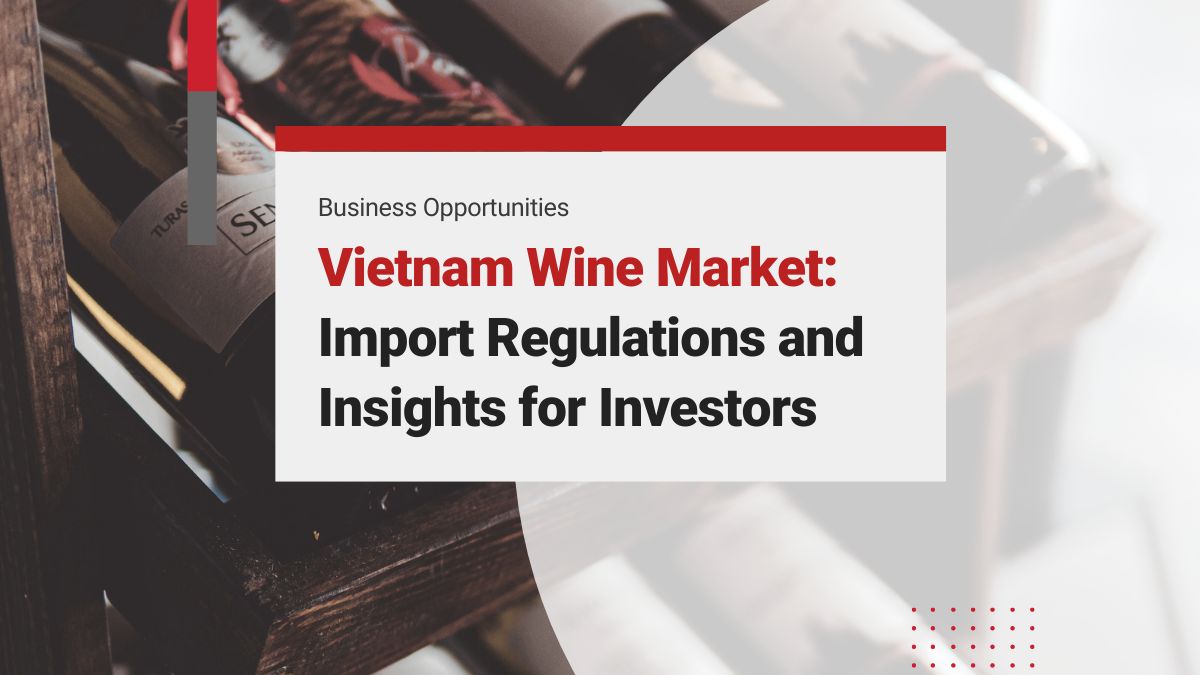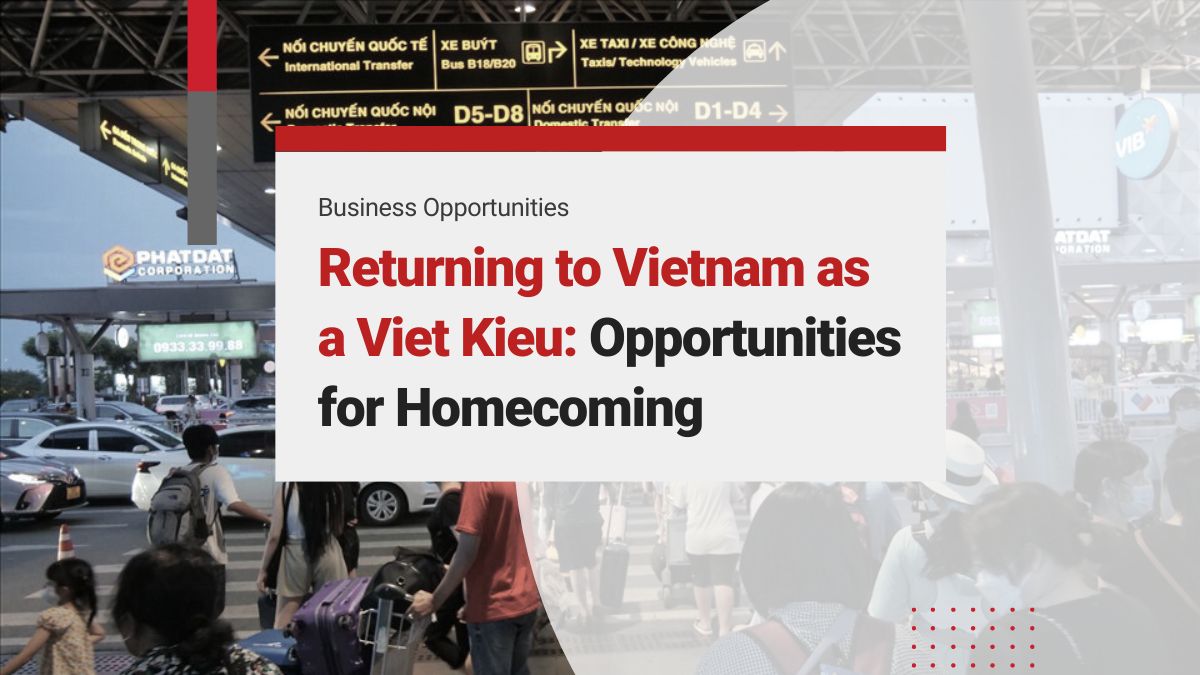For foreign companies venturing into the Vietnamese market, understanding the complexities of local employment laws can be daunting. Employing an Employer of Record (EOR) offers a strategic pathway to navigate these challenges effectively. An EOR simplifies the employment process by managing legal and HR responsibilities, enabling businesses to focus on their core operations without establishing a local entity. This approach not only streamlines the expansion process but also ensures compliance with Vietnam’s employment regulations, presenting a viable solution for companies looking to seamlessly integrate into the Vietnamese market.
See InCorp Vietnam’s Employer of Record Services in Vietnam here!
What is Employer of Record – EOR?
An employer of record (EOR) is an instrumental entity that assumes the legal responsibility of employing workers on behalf of another business. This arrangement is designed to streamline and simplify various aspects of employment, encompassing crucial elements such as compliance, payroll management, tax obligations, and benefits administration.
EORs offer businesses the option to engage their services within the same country or across international borders, each scenario presenting unique advantages and considerations. In essence, an EOR assumes the responsibilities associated with conventional employment tasks and liabilities by providing comprehensive EOR services.
Key Responsibilities of an EOR include:
– The EOR efficiently manages the intricacies of payroll, ensuring timely processing and funding to guarantee that employees receive their compensation promptly.
– Handling tax-related obligations is a crucial facet of the EOR’s role, encompassing the accurate depositing and filing of taxes in adherence to local regulations.
– The EOR assumes accountability for matters related to unemployment and workers’ compensation, navigating the complexities of these areas to safeguard both employer and employee interests.
– Issuing necessary forms such as W-2, maintaining employment contracts, and adhering to documentation requirements like Forms I-9 are meticulously managed by the employer of record.
– From seamless onboarding of new hires to the meticulous process of employee termination, the EOR oversees these critical transitions, ensuring compliance and professionalism throughout.
– Maintaining the certificate of insurance and complying with verification processes like E-Verify are integral components that contribute to the EOR’s commitment to regulatory adherence.
– Upholding standards of safety and integrity, the EOR conducts thorough background checks and drug screenings as part of the comprehensive employment process.
– The EOR extends its services to include the offering and administration of benefits, contributing to a holistic and employee-centric approach to foreign employment.
These multifaceted responsibilities are streamlined through dedicated software platforms. These platforms empower clients, employees, and recruiting partners to efficiently manage their communication aspects for the duration of the work assignment. Moreover, the software offers valuable insights and analytics, providing a comprehensive overview of employees on assignment, associated costs, and other pertinent information.
Employer of Record (EOR) Payroll Services
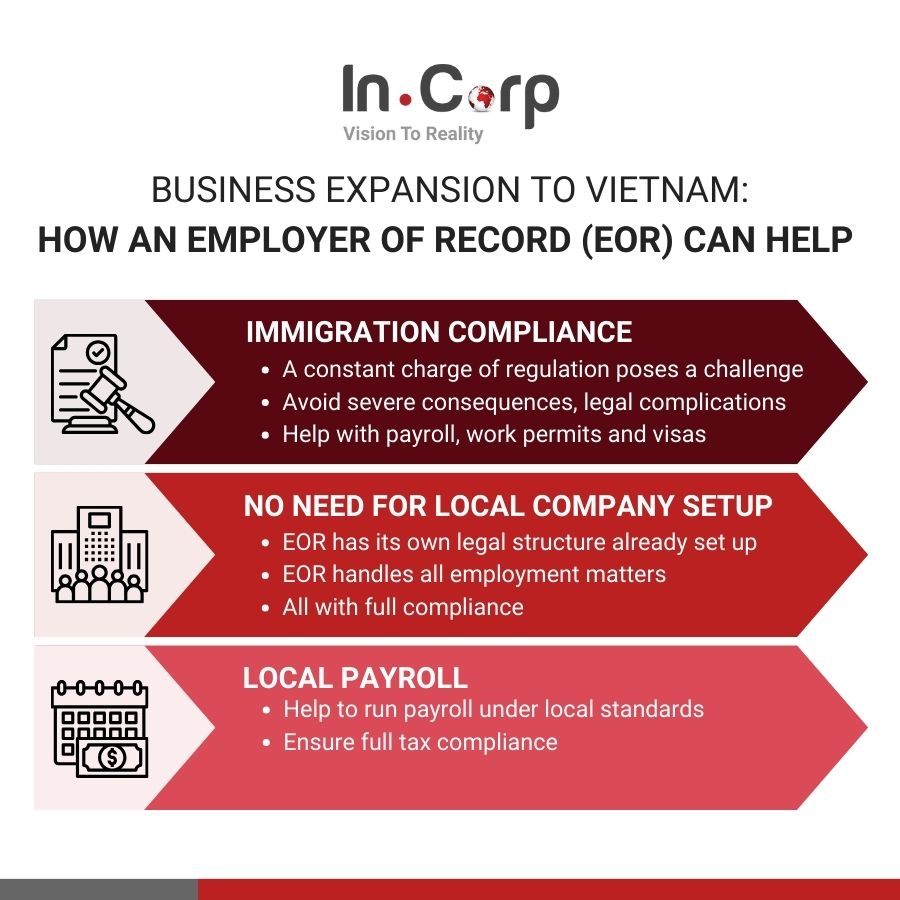
The functions undertaken by an EOR are diverse, adapting to the specific requirements of services and locations. Here are key tasks typically managed by a proficient EOR:
- Ensuring Compliance with Local Employment Laws
An EOR serves as a reliable guide, steering businesses through the intricacies of local employment laws. This involves ensuring that each employee is hired in strict accordance with the prevailing regulations in every country or jurisdiction and providing businesses with compliant employment contracts. As the legal employer, the EOR takes charge of the intricate legal aspects, offering peace of mind to the client’s business.
- Efficient Onboarding
From facilitating the employment agreement to orchestrating the essential processes for a seamless transition, the EOR plays a pivotal role in onboarding new team members. This process is meticulously managed to guarantee that new hires are integrated smoothly into the company.
- International Payroll Management
Handling payroll on an international scale is a complex task, involving compliance with local tax regulations for both employees and employers. The EOR takes charge of this intricate process, managing payroll and ensuring that team members are paid accurately and receive comprehensive payslips.
- Compensation and Benefits Administration
EORs often extend their services to include a spectrum of benefits. While the specifics can vary, these benefits may comprise health insurance, time-off policies, parental leave, and other provisions. The EOR ensures that employees receive comprehensive compensation packages aligned with both local norms and the business’s policies.
- Efficient Contract Terminations
When the need arises to terminate an employee’s contract, the EOR steps in to manage all associated details. This includes handling the necessary procedures and paperwork and ensuring a smooth and compliant termination process.
Read More: HR Outsourcing in Vietnam: Optimizing Operations for Business Success
Pros of Employer of Record (EOR)
Engaging an EOR extends a myriad of benefits, particularly catering to businesses navigating the intricacies of global expansion and remote workforce management.
- Comprehensive Compliance Management and Streamlined People Operations
EORs specialize in handling the bureaucratic complexities associated with hiring. By managing paperwork and onboarding processes, they save businesses valuable time and resources, allowing them to focus on core operations. They serve as a buffer against the risks associated with employment in complex jurisdictions, ensuring that businesses can operate efficiently without falling afoul of intricate local regulations.
- Efficient Handling of Complex Paperwork
For businesses juggling complicated paperwork and diverse employment requirements, an EOR provides a valuable service. This is particularly crucial for companies venturing into new employment regions, whether across different countries or state lines within the US.
- Efficiency in expanding Operations
The EOR expedites the process of expanding operations, allowing businesses to establish a local presence with speed and efficiency. This agility is particularly beneficial for companies aiming for rapid growth or seeking to tap into global talent pools.
- Local Employment Laws Compliance and Mitigation of Employment Risks
EORs provide a crucial layer of support by ensuring compliance with local employment laws. Local experts within the EOR handle intricacies within the bounds of the respective jurisdictions, reducing the risk of legal issues. An EOR provides a proactive approach to mitigating employment risks associated with diverse jurisdictions. By shouldering the responsibility of legal employment, EORs offer a safeguarded environment for both businesses and employees.
- Enhanced Staffing Flexibility
Temporary and Project Staffing: EORs enhance staffing flexibility by facilitating the hiring of international contractors on a temporary or project basis. This is particularly advantageous for startups looking to navigate workforce fluctuations efficiently.
- Cost Saving and Facilitation of Global Expansion
The cost of engaging an EOR in is significantly lower than establishing a legal entity in a specific country. Global employment services, like Oyster, further amplify cost savings by enabling businesses to build teams globally without the extensive financial investment required for entity setup.
As companies increasingly establish operations abroad or embrace remote work, compliance goes beyond mere tax registrations. EORs efficiently address the multifaceted requirements, offering a streamlined approach to expanding businesses with local staff while ensuring compliance with intricate local laws.
- Efficient Payroll Management
EORs efficiently manage payroll in different countries, capitalizing on the varying cost of living to potentially achieve more cost-effective compensation structures.
- Accelerated Expansion
EORs expedite the onboarding process, enabling businesses to swiftly integrate new team members. The efficiency in global hiring allows for faster team expansion, critical for businesses aiming for rapid growth.
- Diverse Global Talent Pool
Building a global team through EOR services naturally injects diversity into the workforce. A more diverse team brings varied perspectives and cultural insights, fostering innovation and enriching the overall workplace environment.
Need support with this? Check out InCorp Vietnam’s Employer of Record Services now!
Cons of Employer of Record (EOR)
While an Employer of Record (EOR) can offer numerous advantages, it’s essential to acknowledge potential drawbacks, as this solution may not align with every business’s preferences and needs.
- Perceived Loss of Control
Utilizing an EOR may lead to a perceived loss of control within the business. Even with varying levels of involvement, delegating core administrative processes to an external entity can pose challenges for those accustomed to maintaining direct control over these aspects.
- Impact on Internal Teams, Especially HR
The extensive support provided by an EOR can result in a reduction of workload for internal teams, particularly HR. While this isn’t inherently negative, it does mean that certain responsibilities are outsourced. This shift may necessitate a reassessment of the in-house HR department’s structure to ensure continued effectiveness.
- Potential Shifts in Company Culture
Inviting an external entity into critical aspects of the employment relationship may lead to shifts in company culture. Employees might perceive changes in their relationship with the employer, impacting their view of the company. Proactive efforts are essential to align the new arrangement with the company’s vision and values.
- Flexibility Constraints Due to Regulations
In adherence to various countries’ regulations, the EOR model may introduce limitations such as tenure constraints and specific obligations outlined in employee contracts. These restrictions can potentially hinder the overall flexibility and utilization of your workforce.
The tasks a seconded worker can perform may be subject to limitations imposed by the EOR model, influencing the range of roles employees can undertake within the organization.
- Operational Implications and Agility Challenges
Engaging an EOR may come with operational limitations that affect business processes, project management, and resource allocation. This can pose challenges to the agility of your team, potentially slowing down decision-making and responsiveness.
Opting for a less experienced Employer of Record (EOR) may introduce potential risks. Here are two critical concerns that businesses should carefully address:
- Data Protection and Legal Disputes
Trust in Sensitive Data Management: Entrusting a less experienced EOR with sensitive employee data requires a high level of trust. Ensure that the chosen EOR has robust data protection measures in place, safeguarding against data breaches and ensuring compliance with relevant regulations.
- Poor Employee Management Practices
Risks of Rushed Onboarding: Some less experienced EORs may prioritize rapid setup times, potentially leading to rushed employee onboarding processes. This haste can result in critical details being overlooked, impacting the overall employee experience.
In a bid for efficiency, less experienced EORs may neglect essential HR tasks, eroding trust among employees and deterring prospective candidates.
EOR vs. PEO (Professional Employer Organization)
A Professional Employer Organization (PEO) serves as a recruitment provider, offering comprehensive assistance to Small and Medium-sized Enterprises (SMEs) in the recruitment process.
PEOs collaborate with established small and medium-sized enterprises, providing co-employment services. The primary focus of a PEO is to assist in managing contracts, with the employment contract being between the employee and the client utilizing PEO services. This arrangement effectively reduces legal risks and streamlines administrative processes.
The key distinction lies in the legal employer status. In the case of EOR, the service provider acts as the full legal employer for workers on the payroll. This makes EOR services an expedient and efficient way to establish a workforce in a foreign country without the need to establish a physical presence.
Conversely, a PEO vendor does not hold the status of a full legal employer. Instead, it shares employer risks and provides additional protection in case of an employee lawsuit. The PEO vendor is not explicitly mentioned in the employment contract and therefore, does not bear legal liabilities.
Co-employment, as facilitated by PEOs, presents a significant drawback due to the shared employee risk between the client company and the PEO. This division of responsibility can lead to challenges, and in certain instances, legal exposure.
A notable case, Stephanie Perez vs. Dermatology Group, PC, vs. ADP, exemplifies how this shared risk model can result in legal complications. In this case, the employee sued both the company and their PEOs for discrimination claims. The legal and compliance challenges associated with the PEO model prompted the emergence of EOR)= services as a viable alternative.
In contrast to PEOs, EOR services offer a distinct advantage by going beyond general HR outsourcing. EORs assume a more comprehensive role by taking on the full risk associated with hiring employees overseas. This allows the client company to concentrate on its day-to-day operations without being burdened by the complexities of international employment.
The EOR model provides a streamlined and efficient solution, offering businesses the freedom to expand globally while mitigating legal and compliance risks associated with overseas employment.
Selecting the Right Employer of Record Partner
When assessing potential EOR partners, it is imperative to consider specific qualities that can safeguard your organization throughout the expansion process. One crucial factor is the depth of the provider’s knowledge in the countries targeted for expansion. To gauge this, inquire about the duration of the provider’s presence in each country, as a longer tenure signifies a more comprehensive understanding of local regulations and intricacies.
Another pivotal aspect is the existence of a permanent in-country entity. Ensure that the provider’s in-country entity, such as an LLC or service branch, is permanent, allowing for local invoicing and the provision of comprehensive HR services. A permanent entity reflects the provider’s commitment to servicing the country, demonstrating dedication through the establishment of a lasting presence.
Assessing the staff’s level of local knowledge is equally crucial. A reputable EOR provider should have knowledgeable staff at the local level capable of managing HR and payroll services. The provider’s depth of experience is evident through years of direct employment in the country and a portfolio of client examples showcasing their expertise.
By carefully considering these factors and asking pertinent questions, your organization can make informed decisions and establish a reliable EOR partnership to navigate the complexities of international expansion confidently.
Check out the advice from InCorp Vietnam’s experts to help your business with HR & Payroll
About Us
InCorp Vietnam is a leading market entry and corporate services firm in Vietnam. We are part of InCorp Group, a regional leader in corporate solutions that encompasses 8 countries in Asia-Pacific, headquartered in Singapore. With over 1,200 legal experts serving over 15,000 Corporate Clients across the region, our expertise speaks for itself. We provide transparent legal consulting, setup, and advice based on local requirements to make your business fit into the market perfectly with healthy growth.
Don’t take our word for it. Read some reviews from some of our clients.
